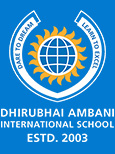THIMUN SINGAPORE - 2018

As our flight took off on the morning of the 18th of November, we were prepared. Armed with resolutions and filled with an unprecedented sense of patriotism for our assigned countries, The Republic of Kuwait and Mongolia, we arrived at Changi airport soon after. Filled with excitement and anxiety, we found ourselves to be increasingly jittery on the way to the hotel. After weeks of intensive preparation, we were here, at THIMUN Singapore 2018. The prospects of what lay ahead overwhelmed us.

From 19th to 25th November at the Hwa Chong Institution, we were immersed in an intensive and rigorous environment. The reluctance to promote one-self as the rightful main submitter of a resolution, the fretful agitation before finding out the fate of one’s proposed amendments, to the gratification of seeing one’s resolution pass, THIMUN Singapore left no emotion untouched. In GA1 our delegates discussed the pressing issue of organized crime, and the threat it poses to international peace and security, as well as the rising matter of digital and cybersecurity on search engines and social media. In GA2, Avana Patel successfully main-submitted and passed her resolution, which proposed feasible solutions to effectively deal with the question of female representation in business and finance. GA3, on the other hand, dealt with sensitive issues, ranging from the protection of the victims of human trafficking in South-East Asia, to finding measures to reduce the incidence of hate crimes. Taanya Kapur and Insha Lakhani, both successfully managed to pass their resolution on these agendas, dealing with these issues in a way that treated the victims with respect and empathy. In GA4, Arnav Sabharwala passionately argued in favour of his resolution on the question of China’s One Belt, One Road Initiative. The increase of depression amongst young people in competitive societies, as well as ways in which the further vaccination of children could be made feasible were what our delegates in GA6 debated on. HRC debated upon the question of the relevance and effectiveness of the Universal Declaration of Human Rights in the digital age, a pivotal issue in need of immediate attention. Delegates Prisha Mangat and Tara Agarwal also managed to pass their resolution with an overall majority. The SC saw an intense level of debate on the situation in Yemen, the Israel-Palestinian conflict, as well as the situation of the Korean Peninsula . Due to the clause-by-clause structure, every subclause, line and word was scrutinized to the highest degree, promoting the idea of co-operation and compromise.


Without the usual sense of understanding that we were MUNning competitively for an award, what we found in our committees was a sense of camaraderie and diplomacy like no other. The opportunity to interact with students from all over the world gave us exposure to their vibrant cultures and their experiences. THIMUN transformed the Hwa Chong Institution into a haven, for like-minded, outspoken teenagers to constructively work towards finding solutions for real-world problems. With our ultimate goal being “to practice tolerance and live together in peace with one another as good neighbors” as stated in the Preamble to the Charter of the United Nations.





- Insha Lakhani 10B

